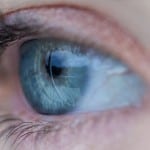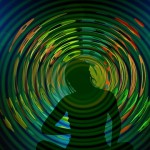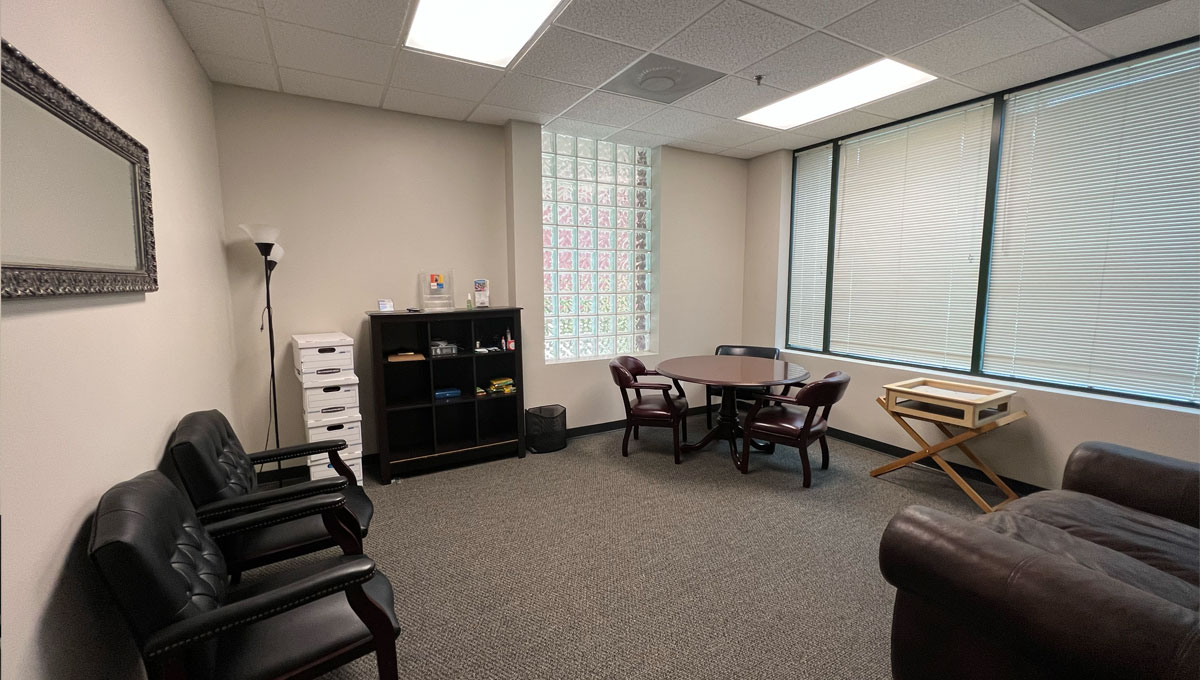Anxiety Counseling Lake Mary: TLC Dedicated Therapists
Feeling Overwhelmed by Anxiety? You’re Not Alone. Does constant worry, racing thoughts, or physical symptoms like a pounding heart leave you feeling stuck in a cycle of fear and restlessness?
Maybe the pressure to be perfect or stay in control has drained you emotionally, making you question your worth. If this resonates, know that it’s okay to feel this way—and even more okay to seek help.
Anxiety isn’t just stress; it can shape how you think, act, and connect with others, leaving you feeling trapped or on edge. At Total Life Counseling (TLC), we understand how deeply anxiety can impact your life.
With compassionate support and effective therapy, you can find calm, rebuild your confidence, and live a life driven by peace, not fear. Take the first step toward overcoming your anxiety—your journey starts here.

What Is Anxiety and Can It Be Treated Permanently?
Anxiety is a natural response to stress, helping us stay alert and focused in challenging situations. However, when it becomes excessive, persistent, or disruptive to daily life, it can turn into an anxiety disorder, affecting both mental health and physical well-being.
While anxiety may not be entirely eliminated, it can be effectively managed with the right treatment options and approach, particularly in the treatment of anxiety disorders.
Effective Ways to Manage Anxiety include:
- Therapy: Develop coping strategies with a professional.
- Mindfulness: Practice meditation or deep breathing.
- Relaxation: Try techniques like guided imagery.
- Lifestyle Changes: Eat well, sleep better, and manage stress.
- Regular Exercise: Stay active doing physical activity to boost mental well-being.
Additionally, with consistent care and support, individuals can experience lasting relief, regain control, and enjoy a more peaceful and balanced life.
How to Overcome Anxiety on Your Own?
Are you looking for some useful tips to overcome anxiety at home? Overcoming anxiety on your own is possible with the right tools and mindset. Let’s discuss them one by one:
- Acknowledge and Accept Anxiety: Recognize your anxiety without judgment. Acceptance reduces its intensity and lays the foundation for effective management.
- Practice Mindfulness: Stay present with relaxation techniques like focused breathing or meditation to create a sense of calm amidst anxious thoughts.
- Use Coping Skills: Try deep breathing, progressive muscle relaxation, or self-reflection to manage stress and understand your triggers better.
- Be Patient with Yourself: Progress takes time. Celebrate small victories and approach setbacks with compassion as part of your journey.
While these strategies can help you manage anxiety and align with your life values, involving yourself in a group setting by joining a support group or seeking professional support from TLC Counseling can provide even greater relief through talk therapy.
With personalized treatment and different types of expert guidance, you can address the root causes of your anxiety and develop lasting coping strategies to regain control and peace of mind.
Feeling the jitters of anxiety can be overwhelming, but you don’t have to face it alone. Our counseling sessions in Lake Mary are here to help you. We hope you can find comfort and clarity through our counseling sessions in Lake Mary.

At Total Life Counseling (TLC), we understand that trauma can leave deep emotional scars, but we believe healing is possible. With the right support and therapy, you can reclaim your life, find peace, and start your journey toward emotional freedom.
Traumatic events can include, but are not limited to:
- Domestic Violence: The emotional and physical scars can be long-lasting.
- Community Violence: Whether it’s an act of violence near you or in your community, the effects linger.
- Verbal Abuse: Harsh words can cut deeper than any physical wound, leaving lasting damage.
- Death: Losing a loved one creates an emotional void that can feel impossible to fill.
- Sexual Assault: Violations of your body and your safety can shatter your sense of trust.
- Physical Abuse: The toll on your body and mind can affect every area of your life.
- Natural Disasters: The emotional damage can be severe even if you weren’t physically hurt.
- Divorce: The end of a relationship can leave you questioning your worth.
- Loss: Whether a breakup or the end of a chapter in life, the grief can feel unbearable.
- Toxic Relationships: Constant emotional strain from unhealthy relationships can chip away at your well-being.
- Car Accidents: The trauma of an accident can leave both emotional and physical scars.
No matter what form your trauma has taken, it doesn’t have to define you. Trauma therapy Lake Mary can help you understand, heal, and rebuild. At TLC, we’re here to walk alongside you, offering the support and care you need every step of the way.
Our Lake Mary Longwood Anxiety & Trauma Therapists Are Available Now Serving Longwood, Lake Mary, Altamonte Springs Sanford Deland Florida areas.
Lake Mary Anxiety Therapy Overview
Learn about anxiety, common anxiety disorders and symptoms, and which anxiety treatment options are suitable for you.

Eye Movement Desensitization and Reprocessing (EMDR) near me in Lake Mary Longwood area
Do flashbacks and nightmares keep you trapped in your past trauma, unable to move forward? Are you yearning for a way to break free from the emotional hold of painful memories?
EMDR is a powerful, research-supported therapy designed to help you process traumatic memories and relieve their emotional impact, using bilateral stimulation (eye movements) to reprocess memories and reduce emotional charge.
Benefits of EMDR:
- Rapid processing of traumatic memories.
- Reduced symptoms of PTSD, including flashbacks and nightmares.
- Reclaim emotional stability and a sense of safety.
- Gain emotional freedom from past trauma.
At Total Life Counseling, we are here to help you heal, rebuild, and reclaim your life—one step at a time!
Take a moment for yourself—talk to our counselor for 15 minutes at no cost, and start your healing journey today!
Trauma may have shaped your past, but it doesn’t have to define your future. Healing is possible, and trauma therapy Lake Mary Longwood area is here to help you rediscover your strength, your peace, and the life you deserve.
Panic Disorder:
Individuals with Panic Disorder often experience intense feelings of apprehension, impending doom, or terror. This disorder is characterized by persistent, free-floating anxiety accompanied by recurrent panic attacks. Panic attacks, also known as anxiety attacks, typically manifest through physical symptoms such as sweating, rapid heart palpitations, and a sensation of choking or the throat closing up. In severe cases, these symptoms are sometimes mistaken for a heart attack.
Symptoms of panic disorder include:
- Intense or rapid heartbeat
- Perspiration
- Shaking or tingling sensations
- Discomfort in the chest
- Overwhelming sense of impending doom
- The sensation of losing control
Social Anxiety Disorder
Social anxiety is one of the most common types of anxiety and is marked by an extreme fear of being embarrassed in a social setting. People are often concerned with being judged or humiliated publicly. The most common type of social anxiety disorder is performance anxiety, such as public speaking. Panic disorder seems to occur without any apparent cause and is characterized by an episode of apprehension and intense fear.
Symptoms of social anxiety disorder include:
- Blushing, perspiring, or trembling
- Intense or rapid heartbeat
- Stomach discomfort
- Stiff body posture or speaking in an excessively soft tone
- Challenges in making eye contact or interacting with unfamiliar individuals
- Feelings of self-consciousness and apprehension about negative judgment from others
Phobia-related Disorders
Phobias are the most common mental health disorder in the United States. A phobia is a focused, intense, persistent, and irrational fear of some specific object or situation. Some common phobias are:
- Social Phobia: Intense fear of being studied in a social setting (see ). Performance anxiety and fear of public speaking are most common.
- Specific Phobia: Specific Phobias, also referred to as simple phobias, entail individuals experiencing intense fear or heightened anxiety surrounding particular objects or situations. Examples of specific phobias may include the fear of:
- Air travel
- Elevations
- Certain animals, like spiders, dogs, or snakes
- Receiving injections
- The sight of blood
- Air travel
- Elevations
- Certain animals, like spiders, dogs, or snakes
- Receiving injections
- The sight of blood
Obsessive-Compulsive Disorder (OCD)
OCD is characterized by repetitive, irrational thoughts and fears (obsessions), such as a fear of contamination or an aversion to odd numbers, that trigger anxiety. These obsessions often lead to ritualistic behaviors (compulsions) aimed at reducing that anxiety, such as excessive hand washing or checking behaviors. It’s possible to experience only obsessions or only compulsions and still be diagnosed with OCD.
Common obsessions consist of:
- Anxiety about germs or contamination
- Worry about forgetting, losing, or misplacing items
- Fear of losing control over one’s behavior
- Aggressive thoughts towards others or oneself
- Unwanted, forbidden, or taboo thoughts involving sex, religion, or harm
- Desire for symmetry or perfect order in things
Common compulsions may include:
- Excessive cleaning or handwashing
- Ordering or arranging items in a specific, precise manner
- Repeatedly checking things, such as ensuring the door is locked, or the oven is off
- Compulsive counting
- Engaging in prayer or silently repeating words
Post-Traumatic Stress Disorder (PTSD)
Develops in response to extreme psychological or physical trauma, which produces feelings of terror and helplessness.
Symptoms of PTSD include but aren’t limited to:
- Re-experiencing the traumatic event in dreams or memories
- Avoidance of activities associated with trauma
- Heightened emotional arousal.
How can Anxiety Therapy Help?
Therapy can help by providing individuals with coping mechanisms, tools for managing anxiety symptoms, and a safe space to explore the underlying causes of their anxiety.
The goals of anxiety treatment:
- Identify distorted thought patterns or triggers that provoke anxiety.
- Overcome and break down irrational fears and worries.
- Learn the difference between unnecessary worry and everyday anxiety.
- Replace and reframe anxious thoughts and behaviors with non-anxious ones.
- Desensitize fearful emotions associated with objects or situations.
- The presence of anxiety signals a cue for coping and relaxation techniques instead of panic.
- Regain control of emotions, thoughts, and life!
Anxiety Treatment Options in Lake Mary Longwood area near me.
Getting Help: Which Anxiety Therapy or Treatment Method is Right for You?
Anxiety or Trauma healing is just a few sessions away. Our trauma therapists are specialists and you can start feeling better often right after the first session. Call for a complimentary phone consultation to find out which of the below therapies is best for you!
Experience a Total Life Counseling Therapy Difference
Don’t let anxiety rule your life. Get into therapy, exercise, eat right and experience life to its fullest!
At Total Life Counseling Center in Lake Mary Florida we look at the whole person, clients experience symptom relief sooner by incorporating exercise, dietary adjustments, supplements along with therapy. TLC Lake Mary Longwood Anxiety & Trauma Therapists Are Available Now Serving Longwood, Lake Mary, Altamonte Springs Sanford Deland Florida areas for trauma therapy.

Why Choose Total Life Counseling for Trauma Therapy?
We understand that healing from trauma isn’t easy, and it can feel like you’re carrying a weight that others don’t fully understand. At Total Life Counseling, we’re here to support you through every step of the process—helping you find your strength and rediscover the life you deserve. Our trauma therapy Windemere Dr Phillips area is the right place for your healing journey.
Struggling with Unresolved Trauma?
If you’re feeling overwhelmed by past experiences, you’re not alone. Trauma can shape your thoughts, emotions, and behaviors, making life feel out of control.
At TLC, we specialize in helping you break free from trauma’s grip. Our trained therapists guide you through the healing process, helping you rebuild your life on your terms with support every step of the way by trauma healing therapy near me.
Feeling Overwhelmed by Flashbacks, Anxiety, or Stress?
Flashbacks, anxiety, and stress can take a serious toll, making simple tasks feel impossible. At TLC, we use trauma-informed therapies, such as evidence-based trauma-focused CBT and EMDR, as well as Prolonged Exposure Therapy (PE) and exposure therapy, to help you regain control, reduce anxiety, and address issues such as irritability while incorporating relaxation techniques to break free from overwhelming emotions and trauma-related memories and reminders. Our goal is to help you feel like yourself again.
Unsure Where to Start or How to Cope?
Starting the healing journey can feel daunting. At TLC, we offer clear, actionable strategies and personalized plans to guide you step by step. We’ll work with you to create an approach that fits your needs, helping you begin the healing process with confidence.
Testimonials
A Few Kind Words From Satisfied Clients
Total Life Blog
Articles & Tips From TLC Trauma PTSD Therapists
Lake Mary Office Location
Our Lake Mary office location, conveniently located at 725 Primera Blvd, Primeira court one, in Lake Mary, FL provides marriage, family, child, adolescent therapy and more services for all ages.
Total Life Counseling Lake Mary
725 Primera Blvd
Primera Court One, Suite 135
Lake Mary, FL 32746





















